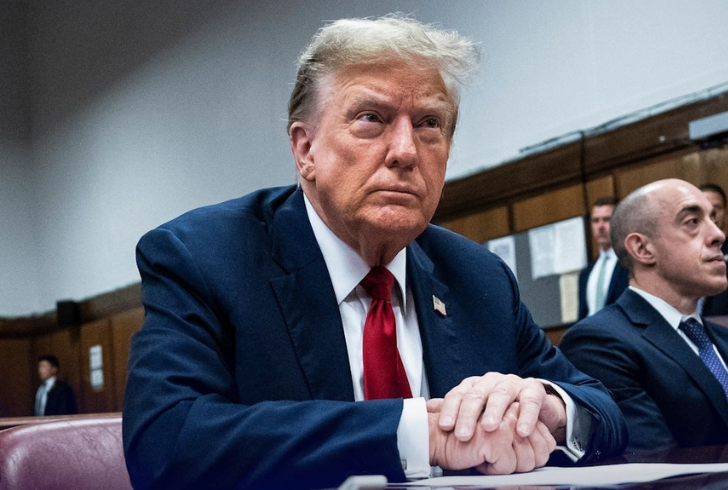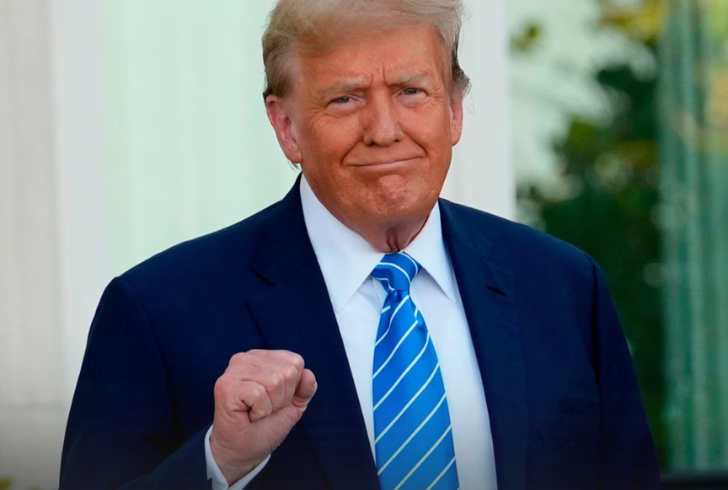As the hush money trial against former President Donald Trump enters its decisive phase, the question on everyone’s mind is: “Could Trump go to jail?” The Manhattan courtroom has been buzzing with anticipation, and the 12-member jury will soon deliberate on the fate of the former president, who faces 34 felony counts of falsifying business records.
The Charges and Their Implications

Instagram | airmailweekly | Trump faces charges linked to payments to adult film star Stormy Daniels in the 2016 presidential campaign.
The charges against Trump stem from payments made to adult film star Stormy Daniels during the 2016 presidential campaign. Prosecutors allege that these payments were made to conceal information from voters that could have harmed Trump’s election chances, a criminal act that elevates these charges from misdemeanors to felonies.
To secure a conviction, the prosecution must prove beyond a reasonable doubt that Trump not only falsified business records but did so with the intent to illegally conceal information from the public. If found guilty, Trump could face a potential prison sentence of up to four years for each felony count.
Potential Outcomes and Their Consequences

Instagram | fox5ny | If Trump be found guilty of the felony charges, he may face a sentence of 16 months to 4 years per count behind bars.
As the trial nears its conclusion, several potential outcomes loom on the horizon:
1. A Hung Jury: If the jury fails to reach a unanimous verdict, it could result in a hung jury, necessitating a mistrial. In this scenario, the Manhattan District Attorney would have to decide whether to retry the case against Trump.
2. Acquittal: If the jury unanimously finds Trump not guilty of all charges, he cannot be retried for the same offenses due to the Double Jeopardy Clause of the Fifth Amendment.
3. Conviction on Felony Charges: If Trump is convicted on the felony charges, he could face a prison sentence ranging from a year and four months to four years for each count. However, given the non-violent nature of the offenses and his lack of prior criminal history, a significant jail term is considered unlikely by legal experts.
4. Conviction on Misdemeanor Charges: Although the indictment charges Trump with felonies, the jury may be instructed to consider the “lesser included offenses” – misdemeanor charges of falsifying business records. A misdemeanor conviction could result in up to one year in a local jail, probation, or fines.
The Appeal Process and Its Implications
Regardless of the outcome, Trump’s legal battle may not end in the Manhattan courtroom. If convicted, he has the right to appeal the verdict, potentially taking the case to the First Department of the New York Supreme Court’s Appellate Division and, ultimately, the New York State Court of Appeals.
As the nation awaits the jury’s decision, “could trump go to jail” question hangs in the balance, with far-reaching implications for the former president’s political future and the nation’s faith in the judicial system.
A Unique Trial with Lasting Impacts

Instagram | abcnews | The trial of Donald Trump involving hush money is a groundbreaking legal saga that could redefine politics.
The hush money trial against Donald Trump is an unprecedented legal saga, with the potential to reshape the political landscape and set new precedents for holding public officials accountable. As the jury deliberates, the nation watches with bated breath, eager to witness the resolution of a case that has captivated the public’s attention.
“The jury’s decision will undoubtedly have far-reaching consequences,” said legal analyst Rachel Barkow. “Regardless of the outcome, this trial has shed light on the intricate web of legal and ethical issues surrounding political campaigns and the conduct of public officials.”
With the stakes high and the implications profound, the hush money trial has become a defining moment in American jurisprudence, a testament to the enduring principles of justice and the rule of law.







